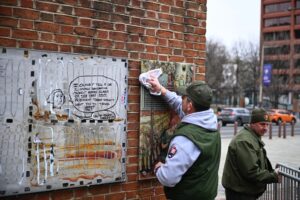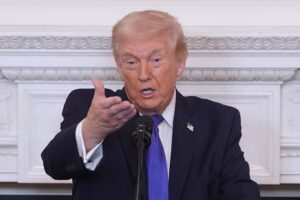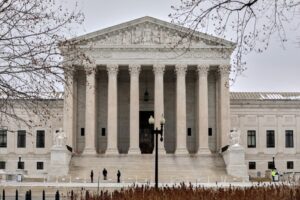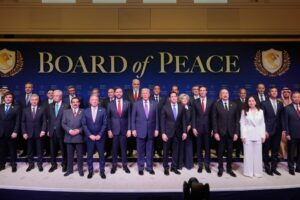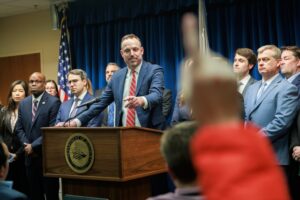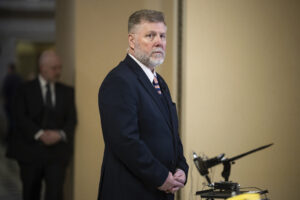Politics
Why 40 million eligible voters are restricted from many polling places
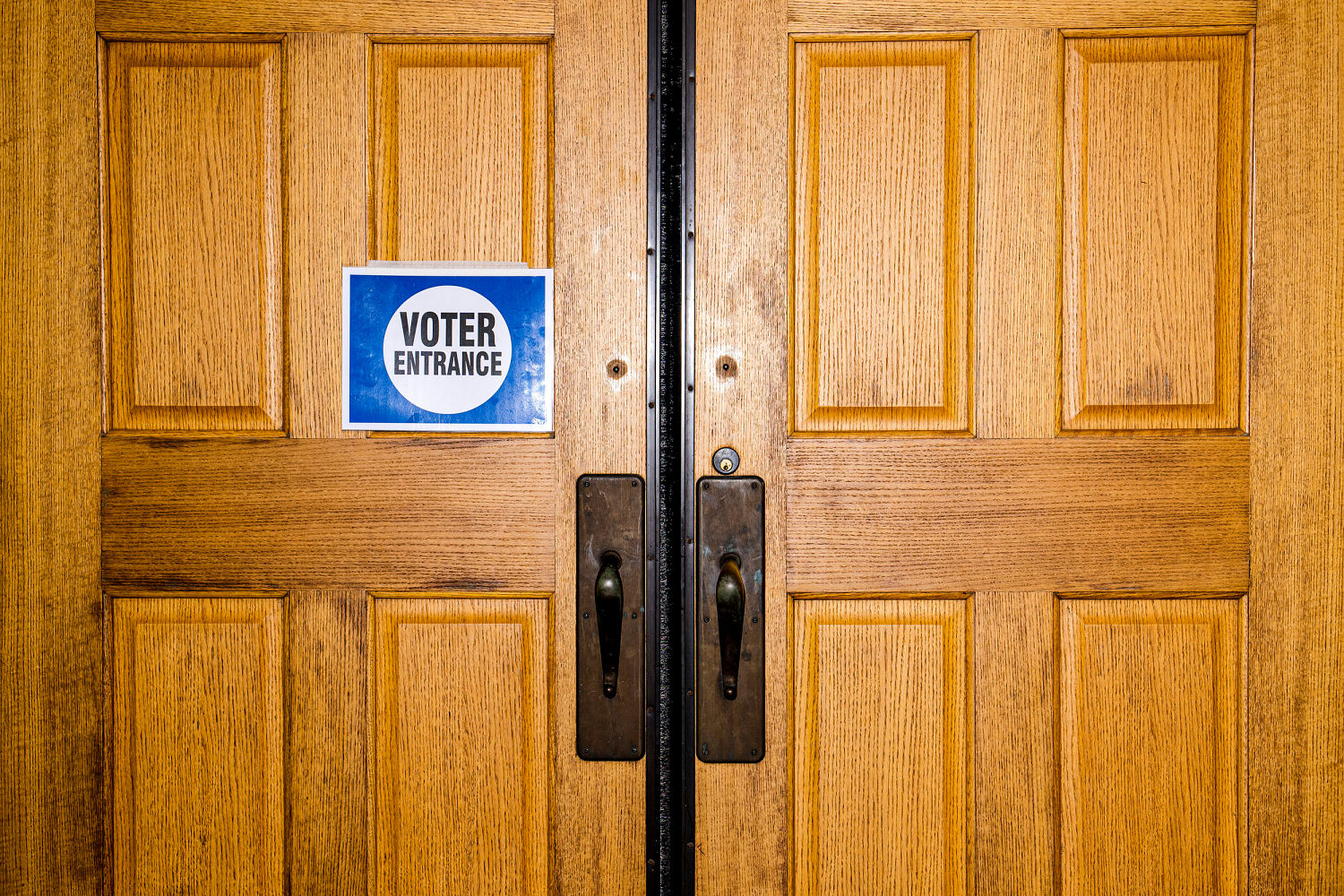
In November 2012, when I was a student at the University of North Carolina at Chapel Hill, I cast my ballot at one of the dining halls. As someone who grew up in California, I was excited to feel that my vote “mattered” in a swing state. The building had an elevator and could be entered relatively easily if someone had a cane or required a wheelchair.
A year and a half later, in my final weeks at UNC, my polling place during the 2014 primary had changed to the local Hillel, just off campus. As I approached the building, the first thing I noticed was that it had two steps to get in, which made me think of how it might be harder for my physically disabled classmates to vote, to say nothing of my disabled Jewish classmates who wanted to freely practice their faith and meet similar people.
Just because a polling place has an accessibility symbol does not mean it is fully accessible for people with disabilities.
I thought about those moments earlier this month as early voting began in swing states like Georgia and North Carolina. The difference in those structures tells a story about how religious institutions are exempt from the same rules that require other private businesses and government buildings to accommodate people with disabilities. And it might compromise those people’s ability to cast their ballot.
A major reason for the discrepancy comes from the Rehabilitation Act of 1974 and the Americans with Disabilities Act. Section 504 of the ADA stipulates that any employers and organizations that receive financial assistance from the federal government cannot discriminate against people with disabilities. Most famously, in 1977, disability rights activists led by Judith Heumann, who died last year, occupied a federal building to force the federal government to implement that section.
But the ADA explicitly exempts religious institutions from Title III, which bans discrimination against people with disabilities in places of public accommodation, such as businesses open to the public. Religious organizations like the Southern Baptist Convention and the Catholic League actually lobbied for protection when the law was being written. William Bentley Ball, who was called God’s litigator, specifically warned that religious freedom “will be directly involved if churches and religious schools are not expressly exempted from the terms of the ADA.”
A new report from Rutgers University found that over 40 million eligible voters are disabled. Many of them may have to adjust their plans to avoid polling places that are difficult to access. According to Christianity Today, about 20% of polling places are in churches. And the raw number of religious institutions that serve as polling places masks the actual challenges given that religious institutions might be the only polling place in a county.
“Once you start to disaggregate the numbers and disaggregate the data, you see a different picture, where in particular states, it can be up to 50% — so half of all polling places — are located in churches or religious institutions,” Jasmine Harris, a professor of law at the University of Pennsylvania, told me.
This is not to say that nonreligious institutions are perfect. Far from it.
Take the battleground states of Georgia and North Carolina. On the first day of early voting in Georgia, more than 300,000 people cast their ballots. In North Carolina, more than 1 million people cast their ballots. People turning out in droves to vote is a moment for celebration in the United States. But obstacles remain to that turnout: In North Carolina, 25% of polling places are in churches. In Georgia, the share is 32%.
Harris also noted that just because a polling place has an accessibility symbol does not mean it is fully accessible for people with disabilities.
“That only gets you so far. That only would tell you whether the outside structure has any barriers, any architectural barriers,” she said. But that does not say what the training is like for poll workers or if the technology is accessible for people who are blind or low-vision.
“We have a really messy system that’s really problematic and has the guise of accessibility,” she said. And while it may not be an issue for a church to be a polling place in a city with many other options, in a place like Davidson Township, Pennsylvania, with only 549 residents, the sole polling location is a church, meaning that voters with disabilities may have few alternatives. In the 2020 election, according to Christianity Today, every polling place in Rincon, Georgia, population 11,000, was a church.
This is not to say that nonreligious institutions are perfect. Far from it. Thirty-four years after the ADA was enacted, many places of public accommodation and even government buildings remain wholly inaccessible. But to have a specific carveout for religious entities creates just one more barrier for people with disabilities. And ironically, it locks them out of using their voice to change circumstances to make the world more accessible.
Eric Garcia is the senior Washington correspondent and bureau chief for The Independent. He is the author of “We’re Not Broken: Changing the Autism Conversation.”
Politics
White House wants a reprieve in spy-powers fight that is splitting the GOP
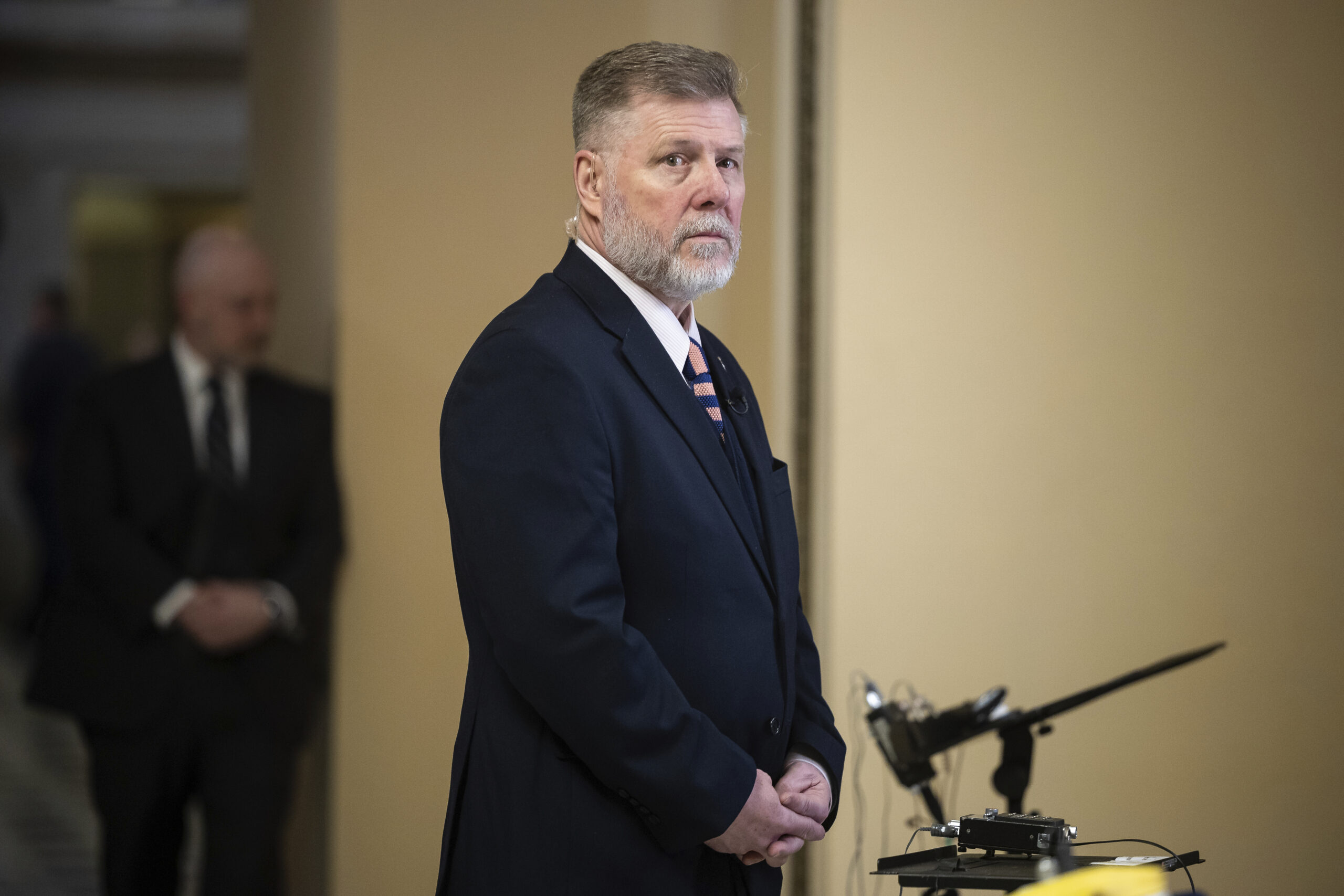
The Trump administration is pushing for a clean extension of Section 702 surveillance authority ahead of an April deadline…
Read More
Politics
White House wants a reprieve in spy-powers fight that is splitting the GOP
The Trump administration is pushing for a clean extension of Section 702 surveillance authority ahead of an April deadline…
Read More
-

 The Dictatorship1 year ago
The Dictatorship1 year agoLuigi Mangione acknowledges public support in first official statement since arrest
-

 Politics1 year ago
Politics1 year agoFormer ‘Squad’ members launching ‘Bowman and Bush’ YouTube show
-

 The Dictatorship5 months ago
The Dictatorship5 months agoMike Johnson sums up the GOP’s arrogant position on military occupation with two words
-

 Politics1 year ago
Politics1 year agoBlue Light News’s Editorial Director Ryan Hutchins speaks at Blue Light News’s 2025 Governors Summit
-

 Politics1 year ago
Politics1 year agoFormer Kentucky AG Daniel Cameron launches Senate bid
-

 The Dictatorship1 year ago
The Dictatorship1 year agoPete Hegseth’s tenure at the Pentagon goes from bad to worse
-
Uncategorized1 year ago
Bob Good to step down as Freedom Caucus chair this week
-

 Politics10 months ago
Politics10 months agoDemocrat challenging Joni Ernst: I want to ‘tear down’ party, ‘build it back up’




